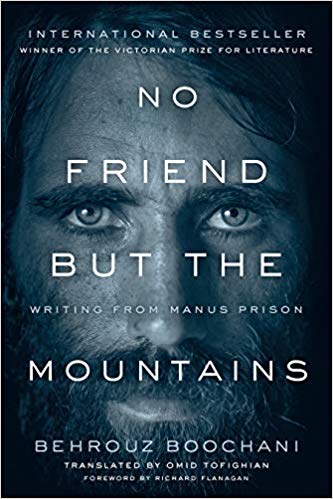Omid Tofighian in the Sydney Review of Books:
 The experience of translating Behrouz’s book is itself rich with multiple narratives; some reaching back before our initial communication, even before the construction of Manus Prison. Over the last few years, especially after meeting Behrouz, I’ve come to realise how integral narratives are to living life well, and the translation process for this book has confirmed and expanded my insights and experiences with storytelling. This translator’s tale provides some insight into the many experiences and conversations that have shaped the book and characterise our shared vision of narrative and life.
The experience of translating Behrouz’s book is itself rich with multiple narratives; some reaching back before our initial communication, even before the construction of Manus Prison. Over the last few years, especially after meeting Behrouz, I’ve come to realise how integral narratives are to living life well, and the translation process for this book has confirmed and expanded my insights and experiences with storytelling. This translator’s tale provides some insight into the many experiences and conversations that have shaped the book and characterise our shared vision of narrative and life.
I had only been on Manus Island for a few hours when I rushed over to the central bus stop in Lorengau town. We met in person there for the first time. Behrouz hadn’t eaten a thing all day – he’d consumed nothing but smokes for breakfast and lunch. He was still on his mobile phone when I got out of the vehicle to greet him. Earlier that day I learned that the body of refugee Hamed Shamshiripour had just been discovered within a cluster of trees near a school, beaten and with a noose around his neck; in fact, I had passed by the crowd of Manusian locals and police on my way in from the airport. The circumstances were extremely suspicious and many refugees still claim he was killed. Behrouz is the first point of contact for many Australian and international journalists and at that point he had been engaged in interviews for the entire day. My first trip to Manus Island was supposed to be dedicated to working on the translation of the book – but on Manus only torture is allowed to proceed according to schedule.
More here.
